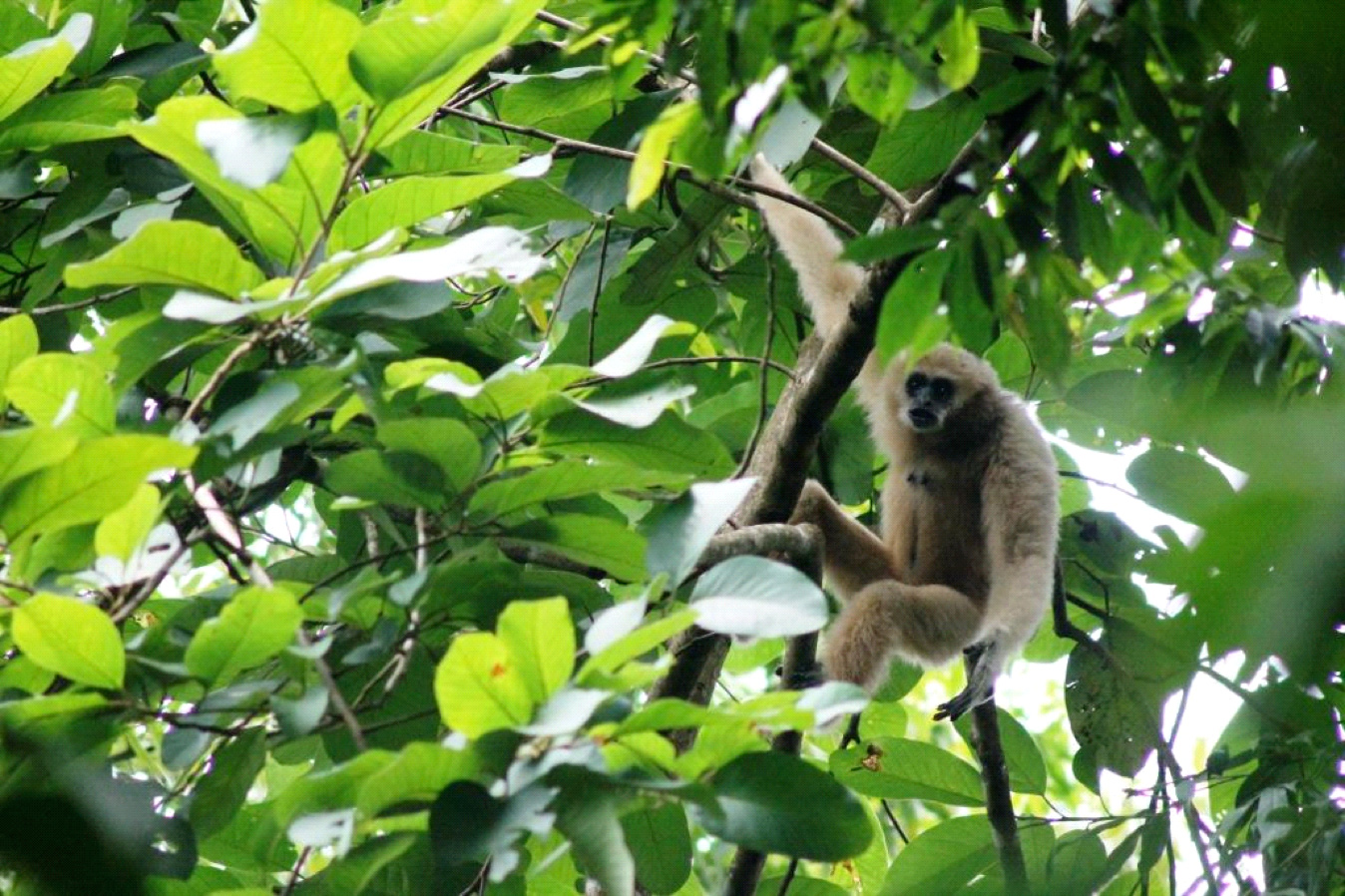


In a village in the Dawna Tenasserium Landscape (DTL) on the Myanmar-Thailand border, the local Karen people have long considerered gibbons their spirit guardians. A small endangered ape found in tropical rainforests across much of mainland Southeast Asia, the white-handed gibbon (Hylobates lar) is under threat from deforestation and from hunting for the pet and Chinese medicine trades, which fetch considerable amounts of money.
But in the DTL, villagers tell stories of gibbons sounding alarm calls to warn them of approaching enemy armies during times of civil war. It is also believed that harming the gibbons – even accidentally – will bring bad luck and that prolonged silence from these otherwise vocal primates is a bad omen. According to 60-year-old village elder Mann Sein Myint, residents have lived in peace with the gibbons for around 100 years.
So it’s little wonder that villagers became alarmed when the gibbons started swinging from new electric powerlines that were recently installed by the Myanmar government to bring electricity to remote areas. While the project means a more stable source of electricity for the 13.8 million people living in rural areas, the wires along the power line are not insulated with any kind of covering, leaving wildlife vulnerable to electrocution.
WWF recently embarked on a project in collaboration with the village, local authorities and electric cable company, insulating 1.6 kilometres line, as well as replacing uninsulated power transformer components and trimming surrounding trees to make the line less accessible to gibbons.

The US$28,000 project, which received a US$15,000 injection from WWF-Hong Kong, was completed within two months, without a single gibbon falling victim to the dangers of uninsulated power wires.
Meanwhile, the villagers have committed to regularly trimming the trees near the powerlines to stop the gibbons from reaching them. WWF-Myanmar staff Shoon So Oo expressed confidence that the project can be replicated all over Myanmar wherever powerlines pose a threat to gibbons and other wildlife. They also hope to train local conservationists to monitor the success of these efforts and to perform gibbon population surveys.